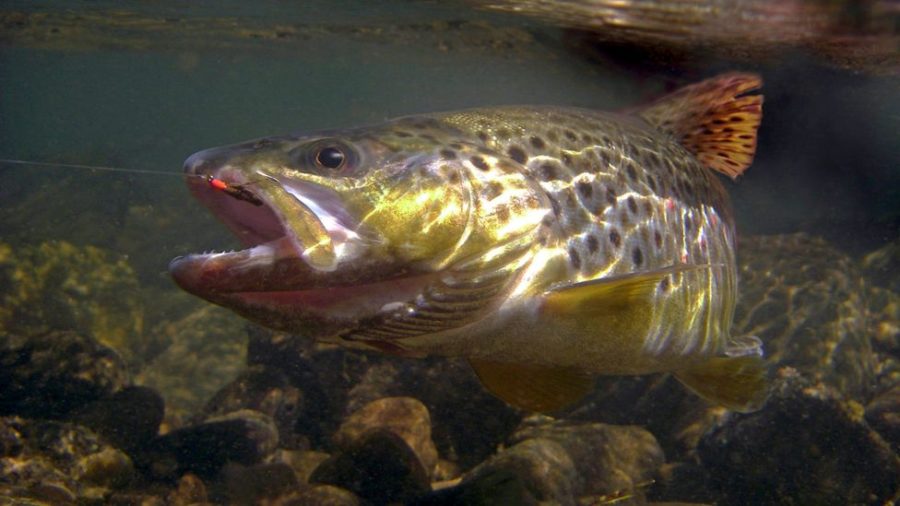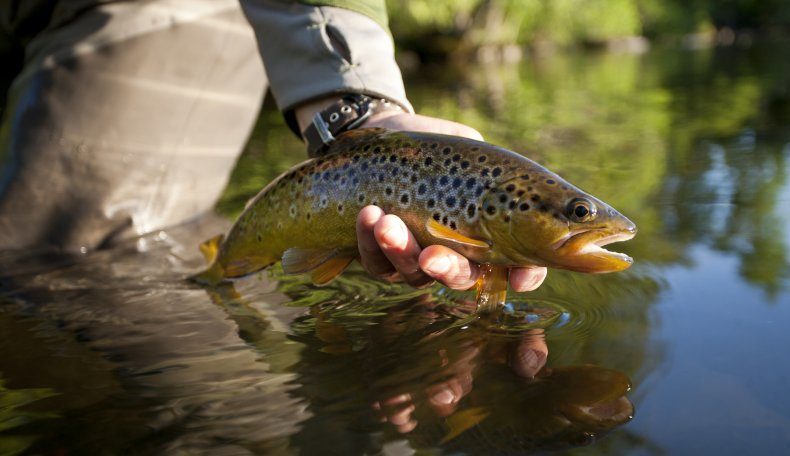Fish swim in water that contains methamphetamine – could this lead to them loitering around sewage pipes ?

The following written content by Matt Parker and Alex Ford
Around 269 million people worldwide use drugs each year. Often forgotten in this story is a problem of basic biology. What goes in must come out. Sewers are inundated with drugs that are excreted from the body, along with the broken down chemical components that have similar effects to the drugs themselves.
Sewage treatment plants don’t filter these things out – they were never designed for it. A lot of sewage also finds its way into rivers and coastal waters untreated. Once in the environment, drugs and their byproducts can affect wildlife. In a recent study published in the Journal of Experimental Biology, researchers in the Czech Republic investigated how methamphetamine – a stimulant with a growing number of users worldwide – might be affecting wild brown trout.

They examined whether concentrations of methamphetamine and one of its byproducts, amphetamine, which were estimated from other studies that have measured illicit drug concentrations in waterways, could be detected in the brains of brown trout. They also looked at whether these concentrations were enough to cause the animals to become addicted.
The trout were exposed to the drug in large tanks over eight weeks and then put into withdrawal, going “cold turkey” in drug-free tanks for 10 days. During that time, the researchers tested the fish’s preference for fresh water or water containing methamphetamine and compared this with the responses of fish that had never been exposed to the drug.
Their findings were intriguing. The methamphetamine-exposed fish preferred the water containing the drug, while no such preference was shown for the untreated fish. The researchers also found that during their withdrawal period, the methamphetamine-exposed trout moved less. The researchers interpreted this as a sign of anxiety or stress – typical signs of drug withdrawal in humans. Read more from BBC Future.





